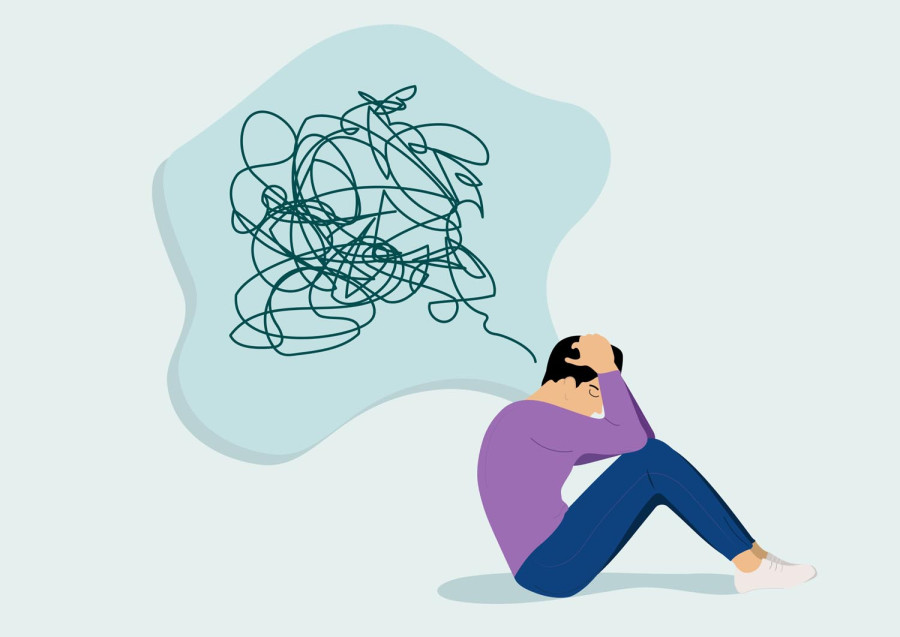Culture & Lifestyle
Addressing Good Boy Syndrome in children
Psychologist Aarati Gurung explains how the pressure to be perfect can affect children’s emotional development.
Aarya Chand
Good Boy Syndrome is when children, especially boys, feel they must always behave perfectly and meet the expectations of their parents, teachers, and society. While this might seem good initially, it’s more complicated and concerning.
Aarati Grung, a psychologist at CMC-Nepal (Center for Counselling and Mental Health), highlights the key psychological factors and coping strategies involved.
What is Good Boy Syndrome, and what common signs may a child show?
Good Boy Syndrome refers to a pattern where a child, particularly a boy, feels the need to always please others, such as parents, teachers, and friends. These children often try hard to follow the rules, avoid arguments, and rarely say ‘no,’ even if they are uncomfortable or unhappy. They worry about disappointing others and pressure themselves to be obedient and successful.
Common signs include always trying to please others, avoiding expressing emotions like anger or frustration, feeling anxious about making mistakes, rarely standing up for themselves, and appearing overly responsible for their age. Over time, this can lead to anxiety, low self-esteem, and difficulty understanding or expressing their feelings.
What causes this syndrome in children?
It often develops from a mix of family expectations, school pressure, and societal norms. For example, when parents have high expectations or teachers constantly push children to be perfect, they start to believe, ‘If I want to be loved and accepted, I have to be perfect all the time’.
In some families, good behaviour is seen as a way to earn affection, leading children to hide their true feelings out of fear of rejection. The society also teaches boys to be strong and suppress emotions, contributing to a lack of self-trust.
How does Good Boy Syndrome impact a child’s mental health?
Good Boy Syndrome can severely affect a child’s mental health. Children often suppress emotions like anger, frustration, or sadness because they fear these feelings will make them seem less lovable or ‘good.’ For example, a child might think, ‘If I show I’m upset, people won’t see me as the good boy anymore.’ Instead of expressing these emotions, they bottle them up, causing internal stress. Over time, this leads to anxiety, low self-esteem, and difficulty making decisions as they constantly second-guess themselves.
Studies show that children who regularly suppress their emotions are at greater risk for anxiety, depression, and burnout. A 2023 study in the Journal of Affective Disorders found that kids who hide their feelings tend to develop poor coping skills, making it harder to manage stress as they grow. Despite appearing well-behaved, these children often struggle with emotional exhaustion, fear, and self-doubt.
How does this syndrome compare to Good Girl Syndrome or Nice Guy Syndrome? Are the underlying dynamics and outcomes similar?
Looking closely, we see that all these have a lot in common. Whether it’s Good Boy, Good Girl, or Nice Guy Syndrome, the root cause is similar—pressure to please others, be perfect, and hide true feelings to gain acceptance. For instance, girls may feel they must always be polite and avoid upsetting others, while boys often carry these pressures into adulthood as part of Nice Guy Syndrome.

Dr Robert Glover, in his book ‘No More Mr. Nice Guy’, explains that people stuck in this pattern often feel frustrated and unfulfilled because they ignore their own needs. They struggle with setting boundaries and expressing emotions, which can affect their relationships and work lives.
What advice can help parents prevent Good Boy Syndrome? Are there specific strategies to support healthier emotional development?
To all parents and caregivers—your everyday actions speak louder than your words. Children closely observe how we behave, react, and treat ourselves and others. If we want them to grow into emotionally healthy, confident individuals, we must first model those qualities in our own lives. Start by creating a home environment where children feel safe expressing all emotions, not just the positive ones. Encourage them to say ‘no’ when something feels wrong, and remind them that making mistakes is part of learning—not something to fear. Praise their efforts, not just their achievements, and make sure they know they are loved unconditionally, not just when they succeed.
The Harvard Center on the Developing Child also emphasises the importance of warm, responsive relationships in helping children build long-term emotional strength. So show, don’t just tell. Let them witness how you handle tough feelings. Speak kindly to yourself in front of them. Respect boundaries. Stay emotionally present, especially during difficult conversations.
What are effective interventions for children with this syndrome?
One of the most effective ways is using Cognitive Behavioural Therapy (CBT). It helps children recognise and shift negative thought patterns. Assertiveness training is also very helpful as it teaches them to express needs and emotions clearly. Another great tool is mindfulness exercises.
Alongside helping the child directly, it’s just as important to support the parents too. Parental coaching plays a big role here. When parents learn how to create a safe, supportive, and understanding environment at home, children feel more secure and are less likely to fall into the habit of always trying to be the ‘perfect child.’ With time and the right support, these children can build healthier emotional habits and grow more confident in expressing their true selves.
What are the long-term effects of this syndrome in adulthood, and what challenges or growth opportunities can come from it?
If not addressed early, Good Boy Syndrome patterns can follow them into adulthood. They might quietly struggle with low self-esteem as they grow, constantly feeling like they’re never ‘good enough.’ They may push themselves too hard, leading to emotional burnout, because they’ve learned to always meet others expectations, even at the cost of their own well-being. Another big challenge is with relationships. Since they’ve spent so much time trying to please others, they might find it difficult to build healthy relationships where their own needs are valued too.




 10.12°C Kathmandu
10.12°C Kathmandu















